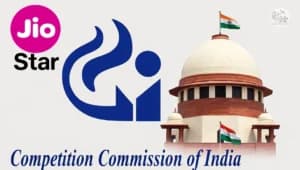On July 10, during a hearing in the Indian Supreme Court, the Election Commission of India (ECI) made an important statement that the Aadhaar card cannot be considered as proof of Indian citizenship.
The matter was being heard in the context of petitions challenging the Special Intensive Revision (SIR) of electoral rolls in Bihar, aimed at verifying the citizenship of voters not included in the 2003 electoral rolls. The petitioners strongly objected to the exclusion of Aadhaar and voter ID cards from the list of 11 documents accepted by the Election Commission as citizenship proof for this process.
Senior advocate Gopal Sankaranarayanan, appearing for one of the petitioners, argued that Aadhaar is accepted under the Representation of the People Act, but the Election Commission refuses to recognise it in the Bihar SIR process.
Read also: All Opposition Party Leaders Move Supreme Court Against Bihar Voter List Revision
Questioning this argument, a bench of Justices Sudhanshu Dhulia and Joymalya Bagchi asked:
“Why is Aadhaar not acceptable?”
Senior advocate Rakesh Dwivedi, representing the Election Commission, responded:
"Aadhaar card cannot be used as proof of citizenship. It is only a proof of identity - it shows that 'I am me and you are you.'"
He cited the Aadhaar Act, 2017, which clearly clarifies that Aadhaar card is not a proof of citizenship or residence.
Read also: Supreme Court Stays Goa Sports Authority's Coach Selection After Woman Alleges Bias in Test
In response, Justice Dhulia said:
"But the issue of citizenship is to be decided not by the Election Commission of India but by the Ministry of Home Affairs (MHA)."
To this, the counsel for the EC argued:
"We have powers under Article 326."
The bench, however, raised serious concerns about the timing of the process. Justice Bagchi said:
"Suppose, your decision to disenfranchise a person already in the 2025 voter list will force them to appeal and go through a whole process, thereby denying their right to vote in the forthcoming election."
Related Post: Supreme Court Declines Urgent Plea to Stop 'Udaipur Files' Release
He further said, "There is nothing wrong in purging the list to exclude non-citizens. But doing so a few months before the elections is problematic."
The Supreme Court is still hearing the case.
The petitions have been filed by several prominent opposition leaders and MPs, including Mahua Moitra (Trinamool Congress), Manoj Kumar Jha (Rashtriya Janata Dal) and KC Venugopal (Indian National Congress), Supriya Sule (Nationalist Congress Party - SP), D Raja (Communist Party of India), Harinder Malik (Samajwadi Party), Arvind Sawant (Shiv Sena - UBT), Sarfaraz Ahmed (Jharkhand Mukti Morcha) and Dipankar Bhattacharya (CPI-ML Liberation). The Dravida Munnetra Kazhagam (DMK).
The outcome of the case could have major implications on voter rights, especially ahead of the upcoming crucial elections.















